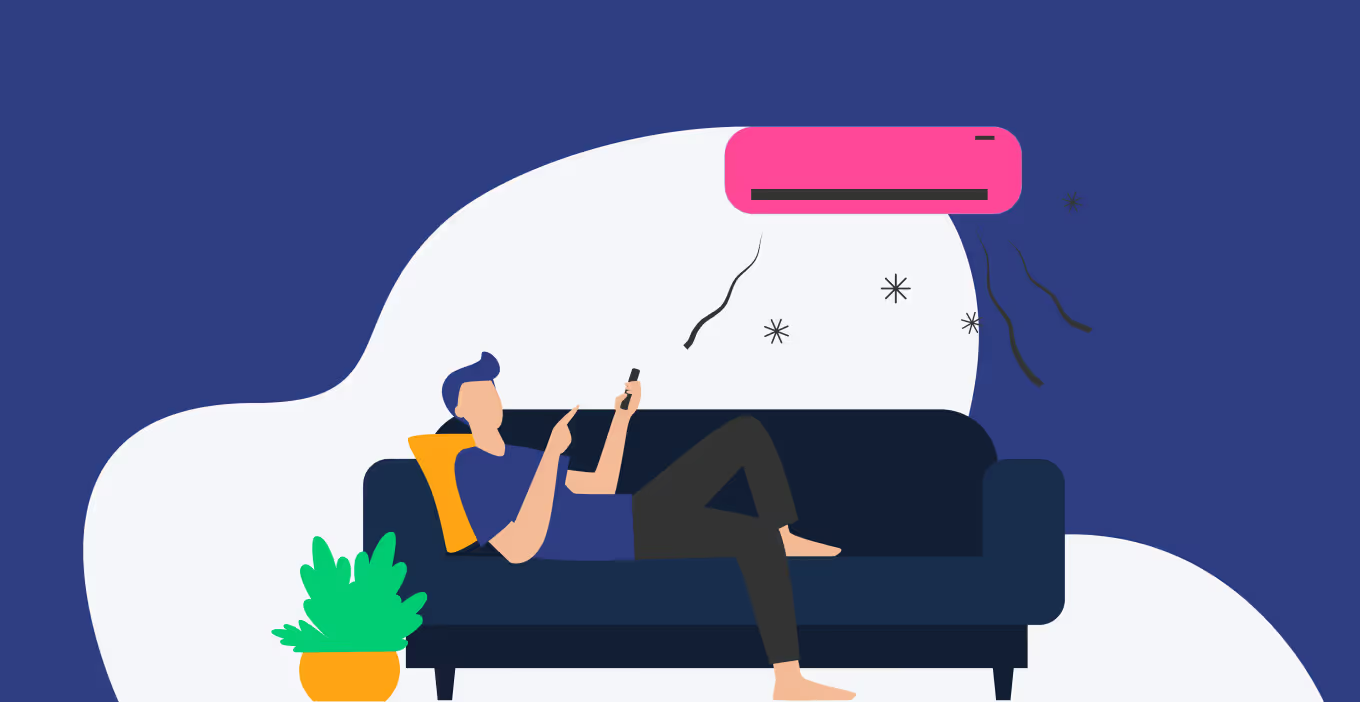When it comes to performing maintenance on rental properties, cleaning air ducts may not be the first thing on many peoples' lists.
By law, landlords are required to provide safe and habitable housing for their tenants.
The HVAC system, however, lands somewhere in between those lines.
An air duct cleaning may not be required by law, but should be considered by landlords.
In this guide, we will be explaining everything about cleaning air ducts, from the effects it has on the air quality to the effect it has on the entire HVAC system.
To begin, let's go over some of the reasons that landlords should conduct air duct cleaning in the properties.

Why Should Air Ducts Be Cleaned In Rental Properties?
The first thing that landlords would want to know before getting their air ducts cleaned is why they are doing it. Without a solid reason to clean the air ducts, landlords will likely skip out on it.
Some of the main reasons that landlords should clean their air ducts include the prevention of:
- Heating and cooling issues
- Potential liability
- Lower property value
- Mold and mildew
Below, we will be explaining how each of these are caused and how they can be solved.
Heating And Cooling Issues
One of the main issues with uncleaned HVAC systems is that they can bring down the heating and cooling capacity. Since there can be a buildup of dust and debris blocking the air duct, the whole system has to work harder to get the air out. This means that you may even be paying more in electric bills if you leave the air ducts uncleaned.
If the tenant is responsible for the utility bills, the landlord may not notice the problems. However, depending on the lease agreement, the landlord may be responsible for the HVAC maintenance if the tenant does report a problem.
Potential Liability
Another issue that arises from having dirty ducts is that it could pose a potential liability. For tenants that have respiratory issues, clean air is very important for them. If the air in the property is not clean, they can have severe symptoms and the landlord can be held liable. So, if the tenants complain about low air quality in the property, it may be time for an air duct cleaning.
If you find that the ducts are clean, however, there are other options. Many landlords choose to install air purifiers in their rental properties. These devices basically clean the air around them, making it safe to breathe in. For more information on air purifiers, be sure to check out DoorLoop's Full Guide On Air Purifiers.
Lower Property Value
If you are trying to sell your property, having a defective or dirty HVAC system can severely hurt the value. This is especially true if there is mold present in the ducts. Unfortunately, this mold can go undetected for a long time and can then be noticed during a pre-sale inspection.
To prevent this, landlords or tenants should conduct regular maintenance on their air ducts and HVAC systems in general. Not only will this help with selling the property, but it might be required by building codes as well.
Mold And Mildew
As mentioned before, one of the most severe problems associated with not having clean ducts is that mold and mildew can grow on the ducts. If mold and mildew are present in the rental property, tenants can suffer from a variety of things. Some of the consequences of exposure to mold include:
- Asthma
- Sneezing
- Coughing
- Shortness of breath
...and much more, depending on the tenant's health history. If tenants begin to show any of these symptoms, the landlord may be liable for any charges due to the health issues.
The best way to stay on top of these issues is to know what to look out for. In the next section, we will be going over some of the ways to tell whether your air ducts need cleaning or not.

How To Tell If Your Air Ducts Need Cleaning
As mentioned before, one of the best ways to stay on top of air duct cleaning is to know when it needs to be done. Below, we have provided some of the best ways to tell when it is time to clean your air ducts.
Insects
One of the most obvious signs that your air ducts need to be cleaned is if insects are present. Insects may their way into the air ducts and make their nests there. They also leave behind all sorts of bacteria in their droppings. When this happens, the bacteria is spread throughout the entire HVAC system.
A clear indication of a vermin infestation in the ductwork is a foul smell. There can also be evidence of chewed-up materials or actual droppings. However, if there is a foul smell in your property, it does not necessarily mean that you have an infestation. To learn more about dealing with smells in your rental property, visit DoorLoop's Full Guide On Removing Smells From Rental Properties.
Dust In The Air
Another telltale sign that your air ducts need to be cleaned is if there is dust in the air. Although dust can come from many places, it is very common that it comes from the HVAC system.
One way to check if this is the case is to stand by the ducts right when the system turns on. If you see dust coming out of the duct, then it is probably a good idea to get it cleaned. However, if nothing comes out, you may need to look to other places to find the source.
Mold
Mold in the air ducts can be pretty dangerous for some tenants. We have already discussed some of the health issues that arise from having mold in your air ducts. One thing that we did not discuss, however, was identifying it.
The easiest way to detect mold in your air ducts is by the musty odor. If not, there will need to be an inspection done, because mold is not easy to spot visually.
If you do find that there is mold in the HVAC system, action must be taken as quickly as possible. However, there may be some disagreement as to who is responsible for such expensive repairs. Below, we will be going over the three different cases of determining who is responsible for the repairs.

Who Is Responsible For Cleaning Air Ducts?
For landlords and tenants alike, taking care of a mold infestation can come as an expensive and unprecedented expense. However, it is important to know exactly who needs to bear that expense. We will be covering just that below.
Tenant’s Responsibility
Depending on the lease agreement, the tenant may be responsible for these repairs. This is an unusual agreement and can potentially lead to problems with the landlord. The main concern with this is that the problems may go overlooked by the tenant since they are only there temporarily.
Since tenants will probably not be on the property to witness the benefits of the repairs, they will likely ignore them. This could lead to a whole array of problems for the landlord in the future.
Landlord’s Responsibility
The landlord being responsible for all major repairs is usually the most common agreement. In this agreement, the tenant must notify the landlord of any issues on the property and they will then take care of it.
However, this means that the tenant must adhere to the landlord's schedule. It also means that the tenant can be potentially charged extra fees if the repairs are too expensive.
Shared Responsibility
Finally, the last way to take care of repairs on the property is to split the responsibility. This is usually the most beneficial agreement as both parties have a degree of control and expense. An agreement like this can mean different things.
The first case can be that every repair is split between the two. This means that the price of the maintenance or repair is simply halved and each party pays half. The other case can be that each party is responsible for certain repairs and maintenance. For example, the tenant may be responsible for changing the carbon monoxide detector batteries while the landlord is responsible for the HVAC system.
The only thing that matters is that the agreement is fair to both parties. This is why it is so important to pay attention to anything that is included in the lease agreement and fight to include anything that you feel should be included.
































.svg)
.svg)

